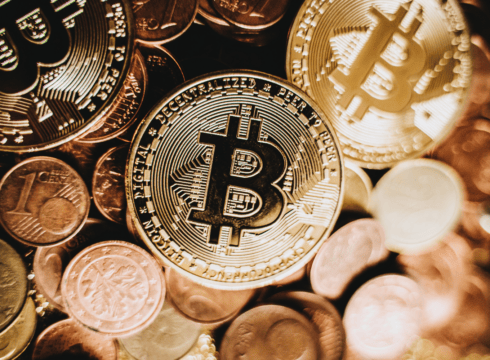By definition crypto assets are borderless and require international collaboration to prevent regulatory arbitrage: MoS
The year 2022 turned out to be a difficult year for crypto exchanges in India from a regulatory perspective
The Group of 20 (G20) countries are trying to reach a policy consensus on crypto assets to form better global regulation
Inc42 Daily Brief
Stay Ahead With Daily News & Analysis on India’s Tech & Startup Economy
According to Minister of State for Finance Pankaj Chaudhary, India’s long-pending crypto policy is currently with the finance ministry and will be finalised after international collaboration and risk evaluation.
“Crypto assets are by definition borderless and require international collaboration to prevent regulatory arbitrage. Therefore, any legislation on the subject can be effective only with significant international collaboration on evaluation of the risks and benefits and evolution of common taxonomy and standards,” the Minister of State informed Lok Sabha in a written reply.
The year 2022 turned out to be a challenging year for crypto exchanges in India from a regulatory perspective. From a 30% tax on crypto profits to 1% TDS on all crypto transactions, higher taxes on VDAs, the new legislations impacted the user growth, trading volume of crypto exchanges.
Moreover, the exchanges also came under the scrutiny of the Enforcement Directorate (ED). So far this year, ED seized INR 907.48 Cr in connection with various cases related to money laundering by crypto exchanges, Chaudhary informed the Parliament last week.
While ED was probing several cases related to crypto frauds, three people have so far been arrested for money laundering. In addition, the authorities have also filed four prosecution complaints before the Special PMLA (Prevention of Money laundering Act, 2002) Court in the cases.
Many global incidents also brought attention to the need for crypto regulation.
The recent collapse of the world’s third-largest crypto exchange FTX raised the question of the need for a stringent regulatory framework, along with crypto scams such as GainBitcoin, BitConnect and Morris Coin rackets, mismanaged Luna and Terra crash.
Earlier, India’s federal economic affairs secretary Ajay Seth informed on Wednesday that the Group of 20 (G20) countries are trying to reach a policy consensus on crypto assets to form better global regulation.
“The regulation should flow from the policy view taken. In fact, one of the priorities which have been put on the table is to help countries build a consensus for policy approach to the crypto assets,” Seth said.
However, while the government is trying to build a regulatory framework for crypto, the Reserve Bank of India (RBI) is still taking an oppositional stance against crypto. RBI Governor Shaktikanta Das recently said that the next financial crisis will occur due to private cryptocurrencies.
The RBI governor reiterated the need for prohibiting cryptocurrencies, adding that cryptocurrencies have no underlying value and pose risks for macroeconomic and financial stability. “After the FTX episode, (I) don’t think we need to say anything more on crypto,” the governor said.
Note: We at Inc42 take our ethics very seriously. More information about it can be found here.


